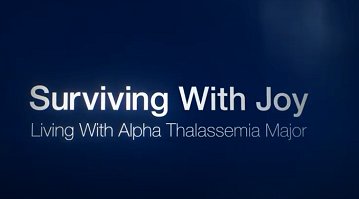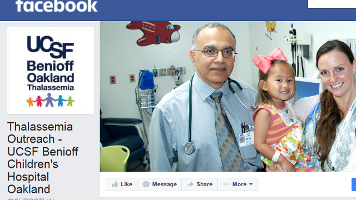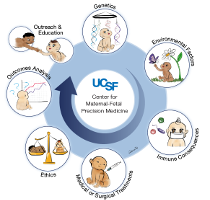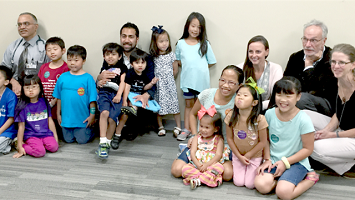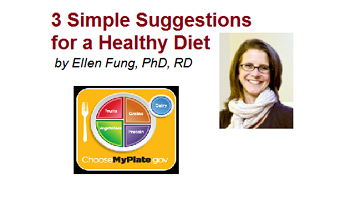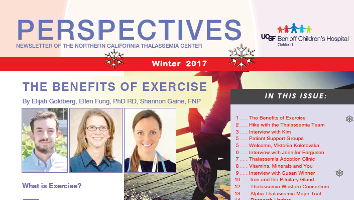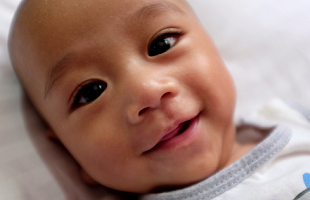Interview with Anne Rishon, PNP

By Meghan Foe, Outreach Coordinator

By Meghan Foe, Outreach Coordinator
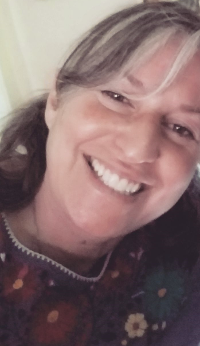
Before Anne Rishon became the nurse practitioner at the thalassemia clinic, most of her work had been with vulnerable populations in women’s and community clinics in the Bay Area. Most notably, Anne’s love of working with adolescents led her to work for 10 years as a nurse practitioner in the Alameda County Juvenile Hall. Though her new role differs in some ways from her previous work, Anne maintains that there are some parts of nursing that stay the same and never cease to amaze her. In our interview with Anne, we spoke about this and more.
HOW DID YOU BECOME INTERESTED IN HEALTH CARE?
My mom’s a nurse, and I was always fascinated by gross things and the body. I don’t know why. In high school, I was a volunteer at the local hospital. Then, during my first quarter [of college], I didn’t have a declared major, and I thought, “I don’t know why I didn’t think about doing nursing,” But they didn’t have a nursing program at my college. So, I contacted the UCLA School of Nursing and transferred to UCLA.
BEFORE YOU CAME HERE, WHAT FIELDS DID YOU WORK IN?
After I got my NP, I worked in community health clinics with predominantly the Latino immigrant population. I worked at La Clinica de la Raza for a long time, and then there was an opening at the Juvenile Hall Medical Unit. I really like interacting with adolescents; I do really well with them. So, I worked [at Juvenile Hall] for the last 10 years. Then it was time for me to move on, and here I am on the Thalassemia Team.
WHAT ARE THE SIMILARITIES AND DIFFERENCES BETWEEN WHATYOU DID BEFORE AND WHAT YOUDO NOW?
The work is always going to be different with underlying similarities. Like here, in the thalassemia program, it’s very detailed, very medical. But it’s also very psychosocial, like my previous work with the kids in the Hall. Making sure that everyone gets what they need is my end goal. That hasn’t changed. But I’m learning a lot, because it is really different in the day to day business.
WHAT DO YOU FEEL LIKE IS THE MOST NOTABLE PART ABOUT WORKING WITHINDIVIDUALS WHO HAVE THALASSEMIA?
As always, it’s the resilience of the patients; it’s their ability to live with what’s really a lifetime condition. And to see people go about living their lives in the midst of all this, it’s pretty amazing.
WHAT IS YOUR DAY-TO-DAY LIKE?
I like to stay one step ahead of myself. The first thing I do is look at the labs for the patients we are going to see, to see how much blood volume is to be transfused, and to see what medical issues we need to address with each patient. And preparing for patient visits is super important; otherwise, you’re constantly two steps behind yourself.
WHAT DO YOU DO AFTER THAT?
Then, I talk to the nurses in the infusion center, because communication in any field is really critical. So I make sure they see what orders I have for pre-transfusion, and that everything is set up before patients arrive. And then we see the patients – that’s the fun part. Then, I go back and finish the notes, make calls, and return phone messages. It’s kind of nice that there’s a sort of rhythm to it, and there’s always stuff that happens in between that might throw you off.
WHAT DO YOU LIKE TO DO WHEN YOU’RE NOT WORKING?
I watch a lot of TV [LAUGHS].
OH YEAH, ANY FAVORITES?
When I’m by myself, I’ll just binge watch Criminal Minds or Law and Order. I love crime shows. Also, cooking shows! Me and the kid will watch cooking shows together. He likes Chopped and Bobby Flay because he likes the countdowns. My big kid (he’s 19) watches cooking shows, too, so sometimes we all watch together.
ANYTHING ELSE TO ADD?
Nope! Thank you!
Updated 3/1/2019

